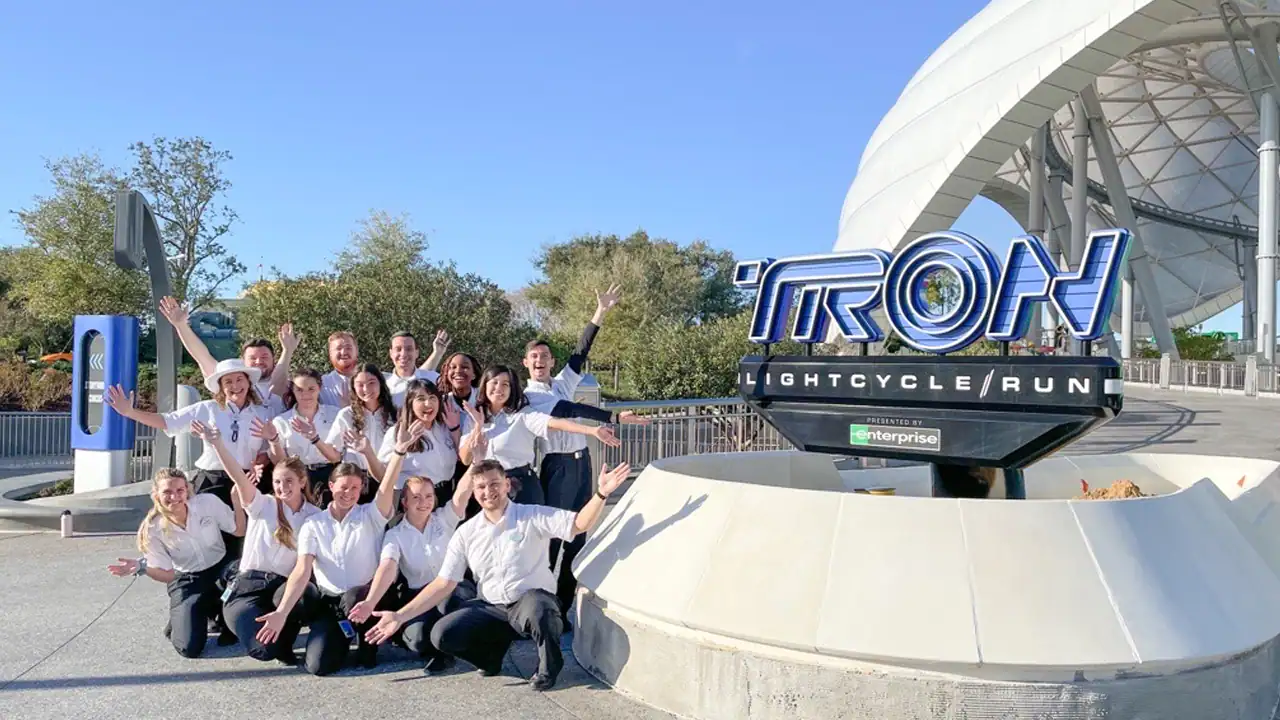
So much for the battle between Disney and Florida being in the rearview mirror! The feud between Governor DeSantis and CEO Bob Iger escalated further today, as the former initiated a criminal investigation and the latter fired back during the company’s 2023 Annual Meeting of Shareholders.
For his part, Governor DeSantis sent a letter formally requesting that Florida’s Chief Inspector General investigate the former Reedy Creek Improvement District board for its adherence to state civil and criminal laws and ethics requirements and the involvement in Walt Disney World employees and agents in the execution of these actions, among other things.
“These collusive and self-dealing arrangements aim to nullify the recently passed legislation, undercut Florida’s legislative process, and defy the will of Floridians. In addition, based on initial observations of counsel, the RCID board’s actions appear to suffer from serious legal infirmities, including, among other things, inadequate notice, lack of consideration, improper delegation of authority, and ethical violations, such as conflicts of interest and self-dealing,” read the DeSantis letter, in pertinent part.
At issue is a 30-year development agreement made between the Reedy Creek Improvement District and the Walt Disney Company prior to the new Board of Supervisors taking over. Those agreements consist of restrictive covenants, license agreement, and developer’s agreement that were discussed at a public hearing by RCID on February 8. The relevant documents were then published publicly (and can be found online here).
Among other things, the agreements approved by the prior Board of Supervisors contains language that allows the agreement to remain in effect in perpetuity (or “until twenty one (21) years after the death of the last survivor of the descendants of King Charles III, King of England”) without regard for future action by the new board. The agreements also prevent the new board from using the Disney name or any of its “fanciful” characters.
The new board asserts that these agreements render them powerless to offer any oversight over Walt Disney World’s tourist district in Central Florida, beyond maintaining the roads and basic infrastructure. They contend that clandestine covenants were made, tying the hands of future board members for decades, and the agreements were unusual, unlawful, and suspect.
For its part, Disney contends that “all agreements signed between Disney and the district were appropriate and were discussed and approved in open, noticed public forums in compliance with Florida’s Government in the Sunshine law.”

In terms of commentary, I don’t have much to say beyond what’s covered in last week’s New Reedy Creek Board Lawyers Up for Battle with Walt Disney World. I’ll start by reiterating (yet again) to not take anything at face value here, because this is more about political theater than it is anything substantive. What the actors involved say is not necessarily what they believe.
I’d also caution against drawing any premature conclusions. In part, this goes back to the ‘team sports’ nature of our system, and people wanting to believe their ‘side’ is in the right and will prevail in the end. It also goes back to all of the twists and turns in the Reedy Creek saga to date, and how no one got this completely right from the beginning. The only thing that’s predictable here is unpredictability.

Finally, I’ll add that almost nobody has subject matter expertise. This standoff is incredibly multifaceted, involving the intersection of law and politics; not just that, but several different areas of law, some of which is arcane and with little precedent. This was already like a law school finals fact pattern; throwing in the Rule Against Perpetuities was just the icing on the cake. If that doesn’t make sense, think of it this way: a podiatrist has more medical knowledge than you and might sound smart when discussing neuroscience, but would you really trust them to conduct surgery on your brain?
Same idea here. No one has an actual legal practice encompassing all these areas of law. The Reedy Creek saga involves myriad complex little-understood legal issues…plus politics. Although certain aspects are ascertainable (and relevant to the legal challenge and its likelihood of success), the eventual outcome as a whole is not. No one should pretend to know how it’ll play out from here.

Unsurprisingly, the question and answers portion of the Walt Disney Company’s 2023 Annual Meeting of Shareholders focused on some of the same underlying issues, either directly or indirectly. (The remainder of questions were either about streaming or something very niche and personal to the questioner.)
Equal unsurprising was Iger’s deft responses to these inquiries, even the most heated ones. His responses ranged from pointed to deferential, with Iger standing his ground in some cases and acknowledging the company’s shortcomings in others. His masterful handling of this underscored precisely why he was brought back. This meeting was a sharp contrast to the fumbling responses and evasive non-answers given by Chapek last year that only served to alienate and annoy everyone.

A couple of the questions specifically asked Iger about the Walt Disney Company’s standoff with the state of Florida.
In response to the first, Iger offered the following: “We love the state of Florida. And I think that’s reflected in not only how much we’ve invested over the last 50 years, but how much we’ve given back in the form of jobs, taxes, and community service…We’ve also always respected and appreciated what the state has done for us. It’s kind of been a two-way street.”

Iger continued: “A year ago, the company took a position on pending Florida legislation, and while the company may have not handled the position that it took very well, a company has a right to freedom of speech just like individuals do. In taking that position, the governor got very angry and he’s decided to retaliate against us, including the naming of a new board to oversee [Walt Disney World], in effect seeking to punish a company for its exercise of a constitutional right.”
“That just seems really wrong to me, not just against any company or individual but particularly against the company that means so much to the state where you live,” he said.

Iger added that Walt Disney World has over 75,000 Cast Members, and the resort complex has created countless thousands of indirect jobs throughout Central Florida, as Disney has transformed the region into a tourism powerhouse. He indicated that approximately 50 million people will visit Walt Disney World in 2023, and that Disney is the largest taxpayer in Florida.
He then concluded by stating that the company is “currently planning now to invest over $17 billion in Walt Disney World over the next 10 years. Those investments we estimate will create 13,000 new jobs at Disney and thousands of other indirect jobs and they’ll also attract more people to the state and generate more taxes. So our point on this is that any action that thwarts those efforts, simply to retaliate for a position the company took, sounds not just anti-business but it sounds anti-Florida, and I’ll just leave it at that.”

There were a couple of times when Iger cut short his answers to ‘leave it at just that’ (more or less), including when asked about the Marvel theme park rights at Walt Disney World (no news to report there, except that Iger wishes they could do more with Marvel in Florida). However, this was not one such instance, as Iger was subsequently asked why the company is weighing in on politics in the first place.
Iger indicated that his job as CEO is striving to do what he thinks is best for business, and that includes enabling Cast Members and employees to flourish. To that point, he said that Disney cannot and should not weigh in on every issue, but that there will be times an issue is “worthy of debate” because of its importance to the business or its employees. He said there are many times he believes the company shouldn’t weigh in on issues, but also feels strongly that it’s the company alone that can make that decision.

He added that corporate America has expressed opinions on countless issues over the decades, including the Civil Rights era and during World War II. He said that some companies that stood silent during times of injustice “still carry the state of indifference.”
Iger added that as long as he’s CEO, he will “be guided by a sense of decency and respect, and trust our instincts that when we do weigh in, we weigh in because the issue is truly relevant to our business and important to the people that work for us.”

Commentary-wise, Iger’s framing of this struck me as savvy. Although this battle will be fought in courts of law, it will also (and more importantly) be waged in the court of public opinion. As we all know, Chapek didn’t do such a hot job of that. It’s also fair to say that some minds are already made up, and nothing anyone says will sway them one way or the other.
That’s not everyone, though. Spinning the state’s approach as being anti-free speech, anti-business and anti-Florida is a sound strategy to sway undecideds. No matter where you stand in this debate, it’s also undeniable that Iger is a more formidable adversary than Chapek. Between that and other presidential candidates sensing there’s blood in the water on this issue, I wonder if there’s a point at which DeSantis sees this battle as politically untenable, washes his hands of it, and moves on to easier targets.

Another through line of a couple questions, and something we’ve seen readers mention here from time to time is that Disney as a company is performing poorly financially and individual movies have bombed because of they are agenda-driven rather than entertainment-driven. In response to this, Iger actually agreed with the underlying premise (when stripped of the heated rhetoric) that the company should focus first on entertainment, while also reflecting the diverse world in which we live.
It probably wasn’t worth correcting the record, but Iger could have questioned the caller’s premises. When you start with your conclusion and work backwards from that, it’s easy to find “evidence” to support your own narrative. That the stock price has fallen because the company made X or Y decision you don’t like, Disney+ is hemorrhaging billions of dollars or losing subscribers because it’s alienating audiences, or that movies bombed because of certain fleeting moments.

People like simple explanations that vindicate our preconceived notions. Personally, I attribute all of the company’s woes in the last two years to discontinuing the Cinderella Castle Dream Lights at Christmas. There’s also the fact that Tokyo Disneyland cancelled Country Bear Christmas, which (indirectly) cast a curse over all of the Walt Disney Company. Fortunately for me, you can’t prove that I’m wrong–the timing lines up, making my assertions unassailable!
Of course, there are other plausible explanations for all of that. Maybe Disney’s stock price plummeted because Wall Street reevaluated streaming services and tech companies, and Disney’s fall is more or less consistent with that sector. Perhaps losing money was always the stated plan with Disney+ as it was in user acquisition mode, and those loses only accelerated because Chapek upped content creation during the peak of the pandemic when it actually seemed like a good idea. (I’m no Chapek fan, but hindsight is 20/20 on that one.)
Maybe the subscriber losses have everything to do with Disney ceding the expensive rights to Indian Premier League, resulting in an exodus of subscribers from India, where the cricket is insanely popular (but where ARPU is 61 cents–a fraction of its normal number) even as North America continued strong growth and outperformed on user metrics.

It’s also possible that certain movies bombed because they just didn’t appeal to audiences, and it had nothing to do with supposed agendas. There were a few recent Disney movies we didn’t see because they seemed pointless or downright bad. (This is something we specifically discussed in Is Disney Ruining Its Reputation? last year.)
This type of thinking is a slippery slope–and also one that cuts both ways. If you assume certain movies did poorly for reasons other than quality, you also have to assume the opposite is also true: that successful movies performed well not because people found them entertaining, but because audiences “appreciated” their agendas.
If you’re chronically online or plugged in, it’s easy to erroneously conclude that everyone is fixated on this stuff. In reality, most people just want to have fun and be entertained. Of course, what type of content resonates differs for different people. But the bottom line is that, if a movie doesn’t look good in trailers or the marketing misses the mark for them, they won’t spend their money and take their time to see it. For most people, potential entertainment value is the see versus skip deciding factor. It’s not that deep.
Planning a Walt Disney World trip? Learn about hotels on our Walt Disney World Hotels Reviews page. For where to eat, read our Walt Disney World Restaurant Reviews. To save money on tickets or determine which type to buy, read our Tips for Saving Money on Walt Disney World Tickets post. Our What to Pack for Disney Trips post takes a unique look at clever items to take. For what to do and when to do it, our Walt Disney World Ride Guides will help. For comprehensive advice, the best place to start is our Walt Disney World Trip Planning Guide for everything you need to know!
YOUR THOUGHTS
What is your reaction to the latest developments in the battle of Florida v. Disney? Think Bob Iger hit the right notes during the Annual Shareholders meeting, or do you agree with the governor’s approach? Or, is this one of this no-win situations where everyone loses the longer it’s drawn out? Keep the comments civil, and avoid personal attacks or perpetuating pointless culture wars. Respectfully debating the change is totally fine, but don’t attack others or troll for controversy. That’s why Facebook was invented.





